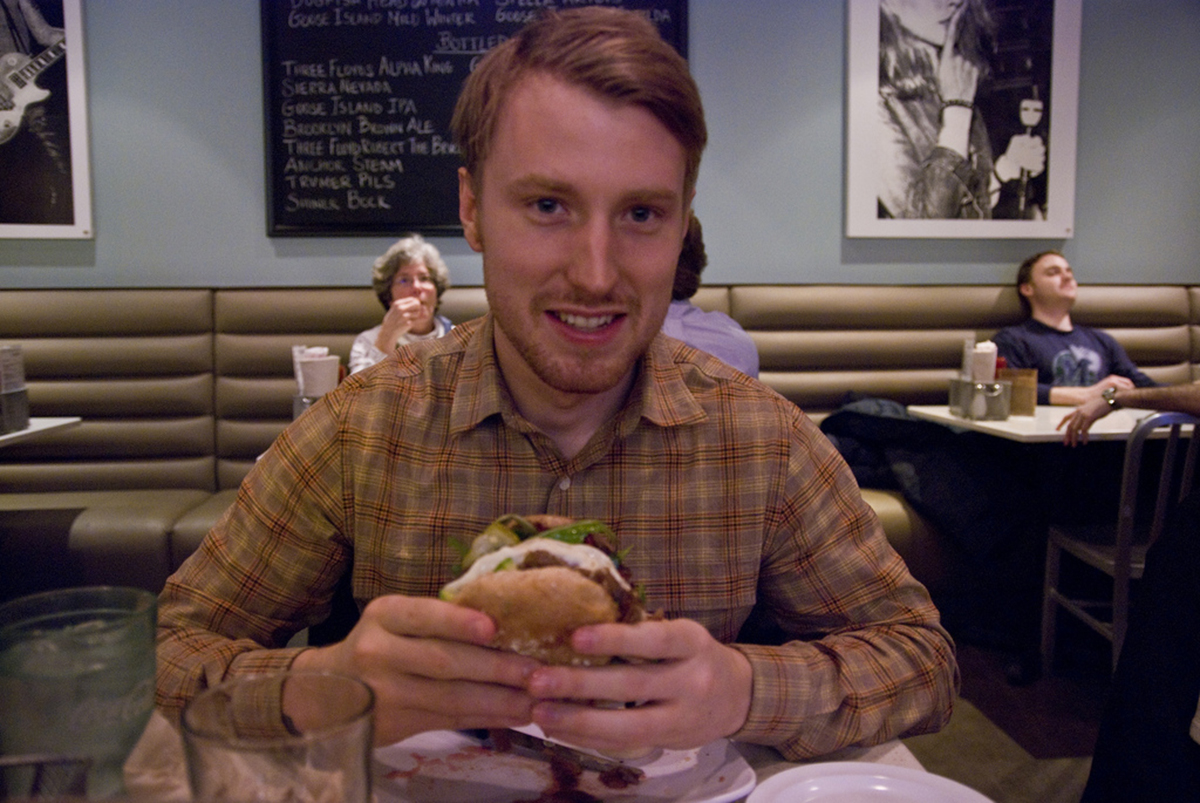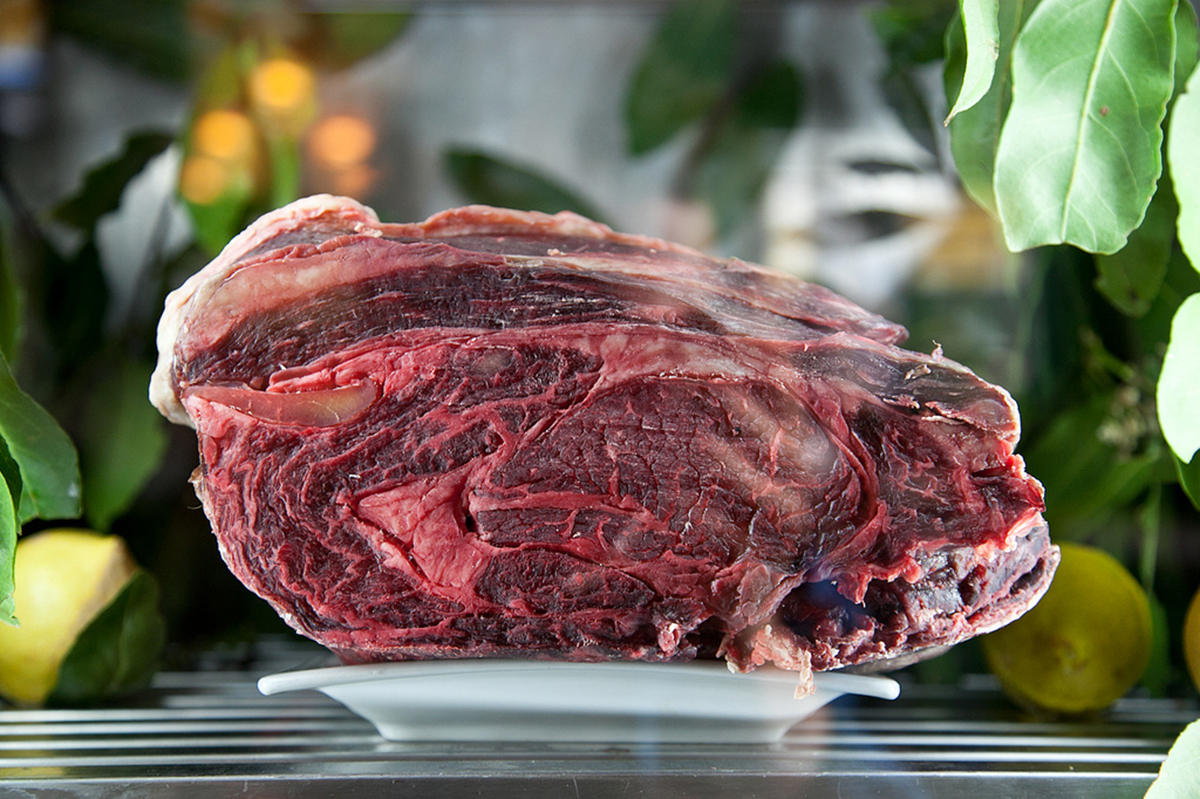This March, a study published in reputable journal Cell Metabolism. Titled 'Low Protein Intake Is Associated with a Major Reduction in IGF-1, Cancer, and Overall Mortality in the 65 and Younger but Not Older Population,' the study seemed to be saying that if we want to live longer, we should eat less protein, particularly less animal protein. That flies in the face of the currently-fashionable high protein diets like Atkins, Paleo and the broader primal approach to eating.
The study said that people under 65 who ate high protein diets were at increased risk of overall mortality, of cancer, and even of diabetes. While that sounds counter-intuitive - protein is slowly absorbed and highly thermogenic, with a tenth to a quarter of its caloric content turned to heat during the process of metabolizing it for use as a fuel, so sugar seems a likelier culprit for a diabetes spike that threatens leave up to a third of us needing medical supervision for type II diabetes. Still, you can't argue with the figures.

Is eating red meat as dangerous as smoking 20 cigarettes a day?
You can argue with the headlines, though, and when you get headlines that tell you eating red meat is as dangerous as smoking 20 cigarettes a day - which is pretty dangerous, I might add - it seems closer examination is called for.
While Paleo advocates questioned the result other writers and commentators had a field day. After all, it's the news vegetarians, vegans and adherents to low-fat, low-protein diets have been waiting for. The Guardian's Holly Baxter penned a column on March 5 warning, 'it's time to kick the high-protein habit - before it kills you.' Hard words - and while Baxter raised some important points in her column, like questioning how it could be that 39% of women are on a diet 'most of the time,' she also took the opportunity to take some wild slashes at Atkins and especially at Paleo, which she referred to as based on 'sketchy pseudo-scientific claims, and overall it's hard to take the import of her words seriously.
The study that caused the furore wasn't quite so emphatic. Being a scientific work without an ax to grind it reported its findings in the staid language of the laboratory. 'We combined an epidemiological study of 6,381 US men and women aged 50 and above from NHANES III, the only nationally representative dietary survey in the United States, with mouse and cellular studies to understand the link between the level and source of proteins and amino acids, aging, diseases, and mortality,' the study says.
And that's where we hit our first major stumbling block.
Reliability of The NHANES Study
The NHANES (National Health And Nutrition Examination Survey) study was based on self-reported data from a very large sample who were tracked over a 24-hour period and their bloodwork done. Then the sample was followed for the next 18 years via their medical records, to see if they died.
Winkler calls the data obtained in the study 'lies.'
He elaborates: 'they did a correlation between the national diet survey in the United States (NHANES), and some data on death by disease. They linked it up, then alleged that protein caused death. Now, NHANES suffers from what all diet surveys suffer, namely: you ask people what they eat and what you get back is lies. People respond normatively. They put themselves in the best possible light. They're not harmful, deceitful lies. In the case of the British survey, people underreport how much they eat by 25% and adolescents by 30%. Underreporting they call it, but in plain English, it's lies.'
See Also: Protein Intake Should Vary With Age
Because none was available.
What's Wrong With NHANES' Data?
NHANES data is the best available - and it's totally unreliable. So what can the Cell Metabolism study teach us about diet and health?
Remember, the study's authors called NHANES 'the only nationally representative dietary survey in the United States.' They used NHANES because there was nothing else.

Well, it's not what one critic calls 'physiologically plausible.'
What that means is that NHANES' data is so far wrong - there's so much 'underreporting' going on -that if most people who reported their eating habits to NHANES were telling the truth, they'd have starved to death long ago, in about a third of cases throughout the history of NHANES.
That's sufficient caloric deficit to lose about half a pound or a pound of body weight a week. If you kept that up for eighteen years, the duration of the survey, you'd lose somewhere around 450 pounds of body weight in that period: equivalent to about three good-sized people.
Respondents who were quite large to begin with were reporting even higher discrepancies: obese respondents typically underreported caloric intake by about 716 calories a day for men and 816 calories a day for women. If they'd kept that up for 18 years they'd have lost about 900 pounds of body weight. Obviously that's not happening.
There are more limitations to this study, such as dietary intake assessment, which in large population studies can be challenging. People may not accurately report their food intake, leading to potential inaccuracies in the data.
Also, NHANES study struggle to account for all confounding variables. These are factors other than the one being studied that might influence the outcome. For example, if high-protein diets are associated with early death, it might be due to other factors common in people who choose such diets, like smoking or lack of exercise.
And what about how much protein they were eating?
The Cell Metabolism authors described a 'high-protein diet' - but what did they mean by that? 'In this study, on average people ate 51% of their calories in the form of carbohydrates, 33% as fat and 16% as protein (11% animal protein). This is likely to be higher in fat and lower in carbohydrates than that recommended on the "Eatwell Plate" which shows the relative proportions of food that we should aim to eat,' commented NHS Choices in the UK. A diet containing 11% animal protein by calories - about 55g a day for a 2000-calorie diet - isn't really a 'high protein diet.' It's a high carbohydrate, protein-starvation diet. A high-protein diet would see consumption top 25% of calories - well over 1g per pound of bodyweight a day, more than double the figures shown here.
Professor Winkler sums up: 'you've got a correlation between food intake and disease, but the food intake data is so poor that any correlation is suspect. Academics sit in front of a computer screen and do data analysis. But they never question the quality of the primary data. I'm not being rude, but my attitude towards that study is contempt.'
But the mistakes and deceits we find can tell us things too. We know what we can't learn from the Cell Metabolism study: we can't learn that protein causes early death, because in reality we don't know for sure what these people were eating.
What can we learn from it?
First, not to trust surveys and headlines at face value. Exactly how many cigarettes a day a high protein diet is equal to is open to question now, I think. Second, we can learn things about what's really going on in Americans' diets by looking at the known rates of underreportage.
The design of a study can impact its reliability. Some NHANES studies are observational, which means they gather data on a population without intervening. Observational studies can be valuable for generating hypotheses but are not as strong in establishing cause and effect as controlled clinical trials.
If obese people underreport caloric intake more than people of a health weight, where do those extra, unreported calories come from? It's unlikely to be from protein, because protein is regarded as a healthy food. Whether that's right or wrong (it's right, relax), that's the perception. So if people are 'lying' to 'put themselves in the best possible light,' which foods will they underreport - ones they consider healthy or ones they consider bad? Probably we would find that consumption of sugar, junk food and saturated fat had been underreported significantly. If anything we would expect to find lean protein intake and consumption of fruits and vegetables to be significantly overreported as people 'respond normatively,' giving the answers they think ought to be true instead of what actually happened.
See Also: Are You Getting Enough Protein?
In other words, the takeaway from this study is that it's not protein that kills you: it's sugar, which really does cause diabetes, and not having an accurate idea of what you eat. We're not dying of protein overdose; we're dying of self-deception.
If you agree, or you think I'm horribly wrong, or you have a story to tell, get in touch in the comments section: I'd love to hear from you.
- Photo courtesy of ramsey beyer by Flickr : www.flickr.com/photos/everydaypants/4402050123
- Photo courtesy of ornello_pics by Flickr : www.flickr.com/photos/ornellopics/6344828894
- The Cell Metabolism study: http://bit.ly/1fF8hmV The Holly Baxter article in the Guardian: http://bit.ly/1kxKo2V What's wrong with NHANES? http://bit.ly/1nzeLVR Professor Jack Winkler's comments: http://bit.ly/1ud0rmK The NHS comments: http://bit.ly/1osESM5


Your thoughts on this